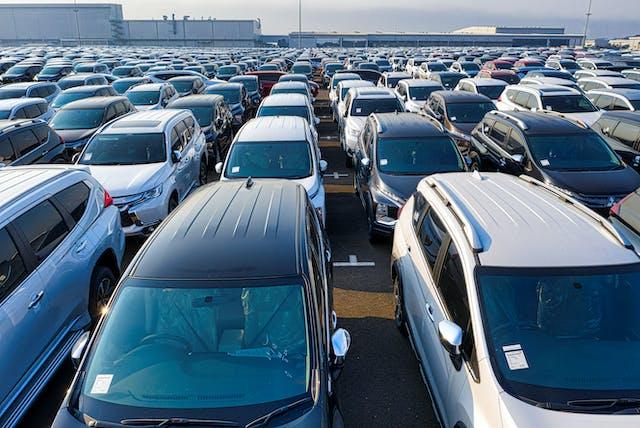Business
5 Intricacies Of The Car Manufacturing World

The world of car manufacturing is a symphony of precision, innovation, and meticulous engineering. Behind the gleaming exteriors of vehicles lies a complex web of processes and technologies that contribute to the creation of these marvels on wheels. Delving into the intricacies reveals a fascinating intersection of art and engineering, where designers and engineers collaborate to bring concepts to life. Understanding the intricate balance of creativity and technical expertise involved in vehicle design and production adds depth to the appreciation of automotive craftsmanship. Aspiring professionals can use what they learn to enhance their skills, ensuring they stay abreast of the latest technologies shaping the dynamic landscape of car manufacturing. (Interesting Topics – Challenges of Motorcycle Accident Cases in Orange County)
Table of Contents
1. Precision Engineering In Design And Prototyping
At the heart of car manufacturing lies precision engineering, a realm where even the slightest deviation can lead to significant consequences. Designing a new vehicle involves a meticulous process of drafting blueprints and creating prototypes. Engineers utilize advanced software to simulate various conditions, ensuring the vehicle meets safety standards and performance expectations. Prototyping involves the creation of physical models, allowing manufacturers to assess the feasibility of designs and make necessary adjustments before mass production. This phase demands an intricate balance of creativity and technical expertise, emphasizing the importance of core tools training courses for professionals in the field.
2. Supply Chain Synchronization
The production of a car involves a myriad of components sourced from diverse suppliers. Achieving synchronization in the supply chain is a delicate dance that requires precise coordination. From raw materials like steel and plastic to specialized components like microprocessors, every element must arrive at the assembly line promptly. Any disruption in the supply chain can cause delays, affecting production schedules and potentially impacting the entire industry. Car manufacturers invest heavily in creating robust supply chain management systems, utilizing advanced technologies to track and optimize the movement of materials from suppliers to the production floor.
3. Robotics And Automation In Manufacturing
Step onto the floor of a modern car manufacturing plant, and you’ll witness a ballet of robotic arms and automated systems working in harmony. Robotics and automation have revolutionized the manufacturing process, significantly enhancing efficiency and precision. Robots handle tasks ranging from welding and painting to assembly and quality control. This integration of technology not only accelerates production but also reduces the margin for error, ensuring each vehicle meets the stringent quality standards set by manufacturers. Training courses have become essential for workers to adapt to and operate alongside these advanced systems. (Excited to know about Cool Accessories for Your New Gaming Laptop)
4. Environmental Sustainability Challenges
While the automotive industry has long been associated with environmental concerns, modern car manufacturers are actively addressing sustainability challenges. The production of vehicles involves resource-intensive processes, from mining metals for components to energy-intensive assembly line operations. Manufacturers are increasingly adopting eco-friendly practices, such as incorporating recycled materials and optimizing energy consumption. Additionally, the shift towards electric vehicles represents a significant stride in reducing the environmental impact of traditional combustion engine cars. This commitment to sustainability is not only a response to consumer demands but also a strategic move to meet evolving regulatory standards.
5. Evolving Safety Standards And Technologies
Safety is paramount in the automotive industry, and the constant evolution of safety standards reflects this commitment. Car manufacturers invest heavily in research and development to integrate cutting-edge safety technologies into their vehicles. From advanced driver-assistance systems (ADAS) to collision avoidance technologies, the goal is to enhance both active and passive safety features. The intricate integration of these technologies requires a deep understanding of software and hardware systems, prompting professionals in the industry to undergo specialized training courses. This dedication to safety not only protects consumers but also shapes the reputation and success of manufacturers.
Navigating The Complexity
In the intricate world of car manufacturing, precision, synchronization, automation, sustainability, and safety converge to create the vehicles that define our era. From the drafting board to the assembly line, every step in the manufacturing process reflects a commitment to excellence and innovation. As the industry continues to evolve, professionals must adapt to new technologies and methodologies, emphasizing the importance of continuous learning through training courses. Understanding these intricacies not only deepens our appreciation for the craftsmanship behind each vehicle but also highlights the challenges and opportunities that lie ahead for the car manufacturing world. The integration of artificial intelligence and machine learning into manufacturing processes is a notable trend, streamlining operations and paving the way for the next phase of automotive innovation. (Shocking & Interesting Information: Determining Liability In Truck Accidents In Chicago)

-

 Business3 years ago
Business3 years agoHow to Do Long-Distance Moves with Children
-

 Travel2 years ago
Travel2 years agoQuick Guide: Moving To Santa Rosa?
-

 Real Estate3 years ago
Real Estate3 years agoWhy Dubai Festival City is a Great Neighbourhood for Young Learners
-

 Business3 years ago
Business3 years agoIs Guest Posting a Good Inbound Marketing Strategy?
-

 Business1 year ago
Business1 year agoThe Ultimate Guide To Thriving In Your Printing Franchise
-

 Business1 year ago
Business1 year agoExploring The Benefits And Challenges Of Restaurant Franchising
-

 Tech3 years ago
Tech3 years agoCyber Table That Will Change Your Life
-

 Lifestyle1 year ago
Lifestyle1 year agoDallas’ Hidden Gems: 6 Must-Try Restaurants Off The Beaten Path!









Recent Comments